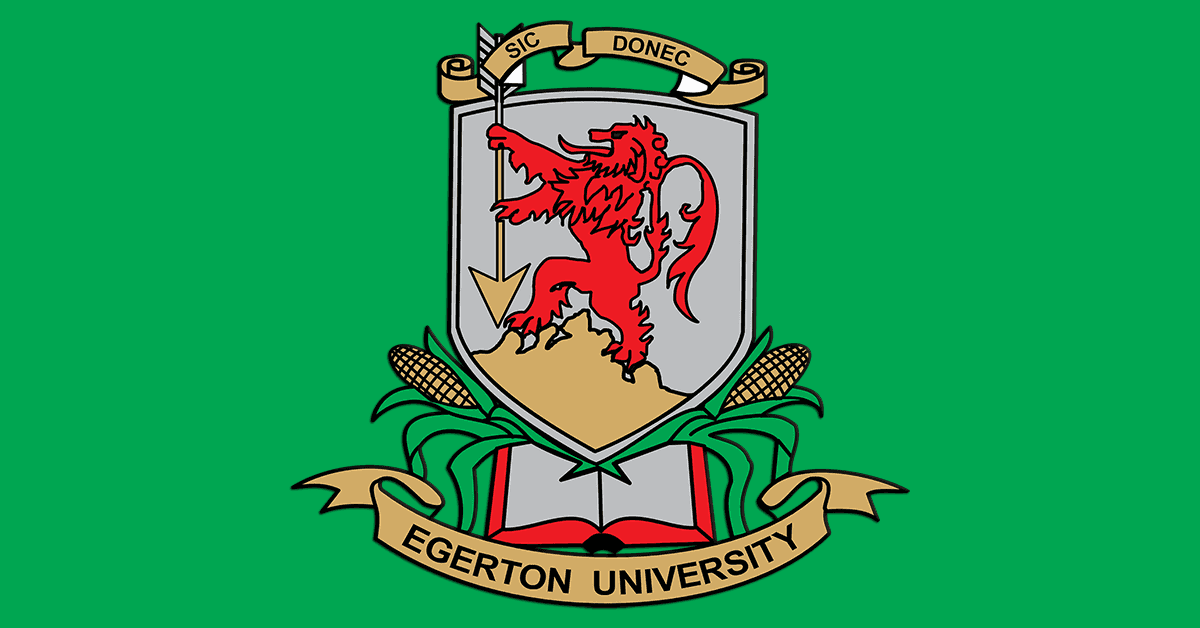Egerton University Joins Other Global Institutions in Fostering Collaboration Research in Transformative Pathways towards Better Water Futures: The Trans-Path-Plan: Water Transformation Pathways Planning Project
Prof Nzula Kitaka is the Kenyan team leader of the new collaborative project; Trans-Path-Plan: Water Transformation Pathways Planning. This five-year initiative is funded by the Dutch Ministry of Foreign Affairs under DUPC 3: Water and Development Partnership Programme, Large-scale projects, with a total funding of 1,499,985 euros.The project aims to address the root causes of inequitable and unsustainable outcomes in the water sector by transforming water policy-making, management, and governance. The project will run from 2022 to 2027 and will be implemented by a consortium of 15 institutions, including academia, NGO/CBOs, and international networks from Africa, Asia, South America, Europe, and the USA.
The project's rationale is based on the recognition that transformative changes are required to achieve the 2030 Agenda for Sustainable Development, particularly in the water sector, where interdependencies between water, society, and the environment need to be better understood. The project will address this issue by undertaking seven case studies across different regions, each focusing on different aspects of the water sector.
The Kenyan case study will be led by Egerton University coordinated by Prof Nzula Kitaka and will receive 12.5% of the total project funds (Euros 187,140. with Kaimosi Friends University (KAFU) and the African Centre for Technology (ACTS) as partners. The Kenyan case study will focus on Yala (Siaya and Busia Counties) and King’wal (Nandi County) Wetlands. The project aims to influence water-centric transformations onto more desirable pathways and away from unsustainable and unequitable trajectories.
The project's ultimate goal is to foster learning about policy analysis tools and planning approaches to support a proactive, adaptive, joint management of transformation pathways towards better water futures. The project's activities will be divided into two streams: transdisciplinary research and network workshops, trainings, and learning.
Under Stream 1, The Trans-Path-Plan project is a comprehensive initiative that seeks to address the root causes of water governance challenges in the region. Through the project's various activities, including research, workshops, and training, it aims to empower water policymakers, users, and scientists with the tools and knowledge needed to achieve sustainable water governance in the region.
Egerton University's involvement in the project, particularly in the Kenyan case study, is crucial as the institution has a strong track record of research and education in the water sector. The partnership with Kaimosi Friends University (KAFU) and the African Centre for Technology (ACTS) enhances the project's reach and impact.
The case studies in Siaya, Busia, and Nandi Counties, which will focus on Yala and King'wal wetlands, respectively, will provide valuable insights into the challenges facing water governance in the region. By using policy analysis tools and approaches, the project team aims to develop science-based tools to support participatory, pro-active, adaptive transformation pathways planning towards better water futures.
The involvement of county governments and government agencies, such as NEMA, WRA, and NETFUND, in policy engagement workshops and other related project activities will also ensure that the project's outcomes are aligned with the government's priorities and policies.
The project's ultimate goal of fostering learning about policy analysis tools and planning approaches to support proactive, adaptive, joint management of transformation pathways towards better water futures is ambitious, but achievable. By empowering water policymakers, users, and scientists with the tools and knowledge needed to achieve sustainable water governance in the region, the project will contribute to the achievement of the 2030 Agenda for Sustainable Development. In addition, the Trans-Path Plan project targets to enhance capacity development by training six postdocs, two PhDs and several master students focusing on Transformative Pathways for Sustainable Water Resources Management.
This means the Nile Student Exchange Project and the Trans-Path-Plan project are two significant initiatives that seek to address the challenges facing water governance in the region. With the leadership of Prof Nzula Kitaka and other coordinators, these projects are poised to make significant contributions to the future of water governance in the region.
By fostering research collaboration between universities in the Nile Basin promoting transboundary scientific networks, and empowering water policymakers, users, and scientists with the tools and knowledge needed to achieve sustainable water governance, these projects will contribute to the achievement of the 2030 Agenda for Sustainable Development.
Written by: Kurian Musa
Communications Officer
Directorate of Marketing and Resource Mobilization
Email: This email address is being protected from spambots. You need JavaScript enabled to view it.







